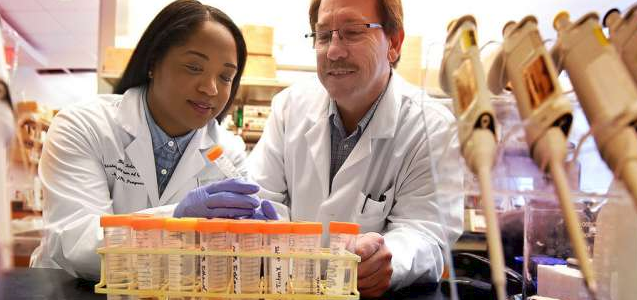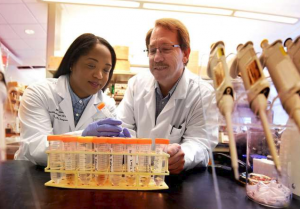
Viagra could help to cut the risk of bowel and colon cancer


Dr Browning, a cancer researcher at the Georgia Cancer Centre and Department of Biochemistry and Molecular Biology at the Medical College of Georgia at Augusta University, was able to cut the number of polyps in half in an animal model genetically designed to have a high incidence of colorectal cancer also known as bowel cancer and colon cancer by giving Viagra. According to Dr Browning, would like to involve testing patients considered at high risk of colorectal cancer, including those with a family history of the disease, as well as multiple previous polyps and chronic intestinal inflammation such as colitis.
Lab mice with a genetic mutation that also occurs in humans, causing the mice to produce hundreds of polyps – resulting in colorectal cancer were treated with drinking water laced with Viagra. The result found that mice developed a reduced number of polyps. Giving a baby dose of Viagra can reduce the number of tumours in these animals by half. According to Dr Browning Viagra works by relaxing the smooth muscle cells around blood vessels so those vessels can fill with blood with much more easily, which is how it, helps men with erectile dysfunction and pulmonary hypertension.
“Giving a baby dose of Viagra can reduce the amount of tumours in these animals by half” Browning said. Browning’s lab is showing it also increases the levels of the chemical cyclic GMP which is known to affect the intestinal lining called the epithelium. Viagra is known to inhibit PDE5, naturally occurring enzyme in colon cells and other tissues that breaks down cyclic GMP so there is more of it available to reduce cell proliferation and improve differentiation into cells like the goblet cells that secrete protective mucus. Guanylyl-cyclase C, or GCC, is the primary source of cyclic GMP in the intestinal lining. Mice like those in his study with the genetic predisposition of polyps, were found to have reduced levels of GCC-activating peptides, which are also commonly lost in human colon cancers.
